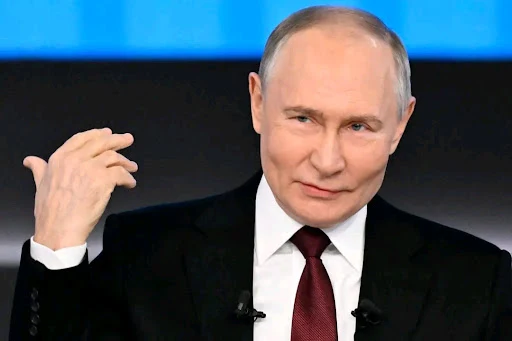By Douglas Jones
In a high-stakes geopolitical maneuver, Russian President Vladimir Putin is reportedly considering granting U.S. companies access to Ukraine's vast mineral resources—now under Russian occupation—as part of a potential peace deal. The proposal, first reported by The Wall Street Journal, suggests that American firms could tap into lithium, rare earth elements, and other valuable deposits in territories Russia controls, covering over a fifth of Ukraine.
The Mineral Jackpot
Ukraine is home to some of the world's most valuable mineral reserves, estimated at over $26 trillion. The Russian-occupied regions alone hold approximately $12.4 trillion worth of energy resources, metals, and rare minerals crucial for modern technology, including battery production, defense systems, and electronics manufacturing. Controlling these resources would give any country a significant strategic advantage in the global supply chain.
Trump’s Strategic Play
Former U.S. President Donald Trump has intensified efforts to mediate a Ukraine-Russia peace deal, with his proposed truce potentially tied to economic incentives. Trump’s team, led by retired Lieutenant General Keith Kellogg, has reportedly floated the idea of U.S. firms gaining a stake in Ukrainian mineral assets. The move is seen as an attempt to offset the $200 billion in military and financial aid that Washington has sent to Kyiv since the war began.
However, Ukrainian President Volodymyr Zelensky has fiercely resisted any proposal that would cede Ukrainian territory or resources. According to sources close to Kyiv, Zelensky views such a deal as a betrayal of Ukraine’s sovereignty and a dangerous precedent that could encourage future territorial grabs.
The Global Chessboard
China, a dominant player in the rare earth market, is also eyeing these mineral riches, adding another layer of complexity to the negotiations. Chinese leader Xi Jinping has been strengthening economic ties with Moscow, and any U.S. involvement in Ukrainian resources could escalate tensions between Beijing and Washington.
Meanwhile, European leaders are alarmed at the prospect of being sidelined in peace negotiations. British Prime Minister Keir Starmer has warned that any deal brokered without Ukraine’s full participation would be unacceptable and could lead to future conflicts.
Economic and Political Fallout
Beyond the immediate geopolitical implications, the deal could reshape global energy markets. If Russian-held Ukrainian minerals enter U.S. supply chains, it could significantly impact global pricing, energy security, and trade relations. At the same time, critics argue that such a deal could legitimize Russia’s occupation, weakening international norms against territorial conquest.
What Comes Next?
As negotiations continue, the world watches to see whether this proposed deal will lead to a lasting peace or simply serve as another economic and political battleground between global superpowers. For Ukraine, the stakes couldn't be higher: a fight not just for its land, but for control over one of the most valuable untapped resource reserves in the world.

